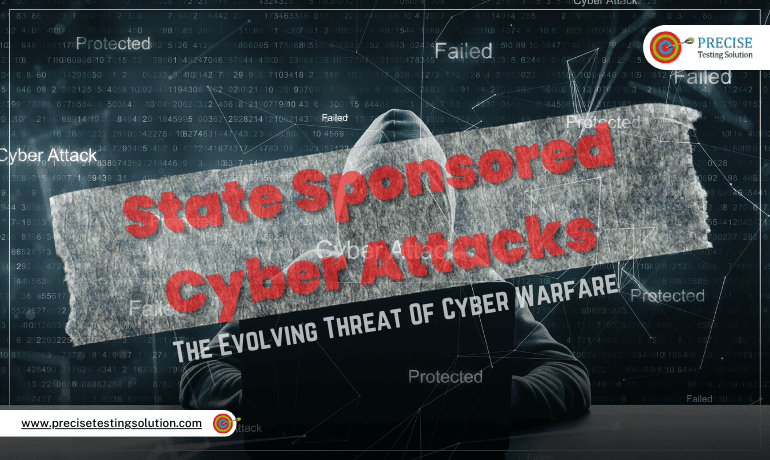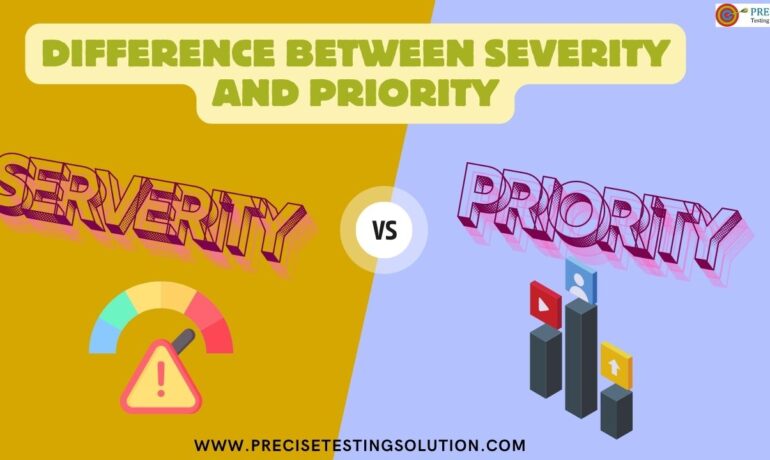State Sponsored Cyber Attacks in Cyber Warfare
The state sponsored cyber attacks has changed the way we feel about the world and interact with it in many ways. Sadly, this change is not confined to peace-time activities. Traditional physical warfare has been widened to encompass cyber warfare in light of the fact that every nation-state is now connected to and dependent upon the internet for news, elections, communication with its citizens.
Although it might assist conventional warfare in achieving such goals, cyber warfare is not about acquiring physical territory or moving troops and equipment, rather it is about gathering intelligence, making money, harming digital and physical infrastructure, obstructing communications, and stealing intellectual property.
Concept of state sponsored cyber attacks
1. Attacks that are state-sponsored and carried out by online criminals who are formally affiliated with a nation-state are known as “state-sponsored cyber attacks.” State-sponsored cyber attacks are done to achieve these three objectives: –
- Determining and taking advantage of national infrastructure weaknesses.
- Gathering sensitive and confidential information or data.
- Exploiting people for financial gain.
2. Through their armed forces and executive branches, states can directly employ hackers. Indirect funding is another option. As a result, if the attack was noticed, it would be simpler to deny the state’s involvement. The diplomatic effects of these strikes may thus be lessened as a result.
3. Furthermore, it makes distinctions between government and criminal organisations hazier. Since cyber warfare is virtual and doesn’t entail or need for any form of overt declaration of war, it’s frequently exceedingly challenging to identify the specific state actor who committed the crime.
4. Examples of state sponsored cyber attacks: –
- Espionage to discover corporate secrets, technologies, secret political information, etc.
- Attacking critical infrastructure of the organisation that can damage the defender and their defensive capabilities.
- Spreading misinformation in disrupting political opinion within a state, affecting elections, malicious propaganda against governments or individuals, or improving public opinions for certain favored parties.

Real life examples of state sponsored cyber attacks
- The 2016 U.S. Presidential Elections is one of the prime examples of how state sponsored cyber attacks to promote cyber warfare can be used to target the integrity of elections and how the trust of people could be shattered against the ruling government through spreading social-media based misinformation campaigns propagated by the ruling dispensation of Russian Federation.
- Another real-life example of state sponsored cyber attacks to promote cyber warfare was when the U.S. National Security Agency recorded nearly every cell phone conversation in the Bahamas, without in the knowledge and taking permission from the Bahamian government, along with similar state sponsored cyber attacks in Kenya, Philippines, Mexico and Afghanistan as well.
- Another most famous state sponsored cyber attacks that resulted in physical sabotage was the 2010 attack on the Iranian nuclear fuel processing facility that resulted in the physical destruction of almost 1,000 uranium enrichment centrifuges by the Stuxnet computer worm. The evidence had suggested that the worm was created by the United States and Israel in a collaborative effort and this entire top-secret state sponsored cyber attack was given the code name “Operation Olympic Games”.
Strategies to counter state sponsored cyber attacks
The best way to counter state-sponsored cyber-attacks is to build a viable defence and deterrence strategy. This would mean thoughtful investments in cyber intelligence infrastructure and the global collaboration of nation-states against such cyber-attacks.
At organization level, here are some of the strategies which can be made to counter such types of state sponsored cyber attacks: –
- Implement a comprehensive cyber security strategy that consists of measures to reduce the attack surface, efficient patch management, active network monitoring via next-generation cyber security technologies, and an incident response plan that is ready to go.
- As part of the firm’s cyber security strategy, develop a solid plan to identify assets by utilising the Defence-in-Depth (DiD) method and a risk-based approach to reduce the exposure of vulnerabilities to a level that is acceptable for an organisation.
- Use SIEM (Security Information and Event Monitoring) technologies to implement network traffic monitoring, cybersecurity issue identification, notification, and alerting.
Conclusion
In the end, we can conclude to say that, cyber attacks are not always carried out by states. State sponsored cyber attacks are difficult to identify since they are heavily funded, outfitted, and trained. Even if the attack is found, it can appear that someone else was responsible.
It can be exceedingly challenging to prove that a state was behind a cyber attack. Because of this, states now have an efficient and largely risk-free option for conducting cyberattacks.
For more information, visit our website at www.precisetestingsolution.com
Call our office @ 0120-3683602 or you can send us an email at [email protected]
A Guide to Determining Severity Vs Priority Levels
In any project, especially in software development, bug tracking
What Is Pharming? A Comprehensive Guide to Protection and Prevention
What Is Pharming in Cybersecurity? Pharming is a sophisticated


